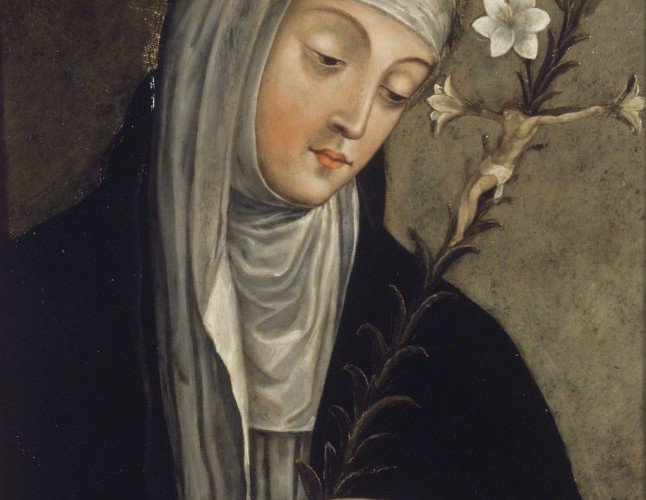One of the most fascinating aspects of the modern feminist movement is the way it seeks to emancipate and blaze new trails for women through the confined parameters of a cult of masculinity. What do I mean? Modern feminism’s success is measured by how it keeps up with masculine standards and roles. For recent examples of this, check out the glowing headlines surrounding MMA fighter Ronda Rousey and two “badass” female soldiers who graduated from the challenging Army Ranger course. Regardless of undeniably impressive accomplishments and abilities, in both cases, feminism’s triumphant march is gauged solely in terms of penetration into historically masculine spheres. I have to ask the obvious question: How is this a victory for women? Ironically, what gets lost in the feminist frenzy is the true feminine genius unique to women.
I recently saw a clip from a Frontline special on the feminist movement of the 1970s. (Depressing.) One of the guests was reminiscing about some feminist icon from the not-so glory days. Full of admiration, she gushed, “She was really ballzy!” Nice. So the measure of this female icon’s greatness apparently was the fact she “had balls.” So a woman’s strength is determined by how she lines up with masculine virility? It’s a bit crass, but the feminist-on-feminist encomium reveals a lot about the focus or rather, obsession of their movement. You’d think that such a remark would be deeply offensive to women, but not to this feminist. it was the highest praise imaginable. Forget any notion of complementary manifestations of strength, masculine and feminine. Forget any notion of particular feminine strengths and gifts that men do not have (and there are many). No, strength is only one-dimentional, and can only be legitimate and true if it keeps up with old boys club. How boring!
Feminism’s ubiquitous reach has made steady inroads into Catholic circles as well. Cardinal Raymond L. Burke recently offered some profound reflections on the negative ramifications of the feminist movement in the Catholic Church in the wake of the Second Vatican Council. (Of course, media pundits pooh-poohed the remarks as patriarchal, simplistic and offensive.) Burke dared to make a connection between the drop in interest in the priesthood among young men and the admittance of altar girls. It’s a pretty logical when you look at it calmly. Serving at the altar is a unique way to introduce boys to the life of a priest. If young girls are also in the mix, boys will be less enthusiastic about serving. Many others have made the same point over the years. Burke also commented on the feminization of the liturgy and sanctuary, where, “apart from the priest, the sanctuary has become full of women.” This is pretty obvious to anyone who has attended Mass recently.
The basic thrust of the feminist movement within the Church has of late been, “How can we take on as many roles as possible that used to be reserved to priests, deacons and altar boys?” The holy grail has always been the priesthood itself. Everything is seen through the ultra-narrow lens of what men are doing and when and how women can do it too. Again, feminists have accepted the false premise that a woman’s importance and relevance in the Church can only be measured by the degree to which they can mimic what the priest does. The flaw, again, is to cast aside the talents of women, and to equate “participation” with mere doing rather than being.
I’ve often remarked on how we’re not seeing any men petitioning the Vatican to become nuns. Have you ever heard a guy on a 60 Minutes interview say, “I feel deep inside that God is calling me to become a nun.” Feminists aren’t making any noise about the rule that only women can be nuns. Don’t they see that as restrictive? Why, then, are they so singularly focused on the priesthood? It’s because importance in the Church is measured along the narrow confines of having access to what they perceive as the reins of power. Power is the goal.
Nancy Pelosi, liberal paragon and confused Catholic, once reminisced that as a young girl, she admired the religious sisters, but she really looked up to the priests because they “had the power.” This anecdote speaks volumes about how feminists perceive the world (an endless fight for dominance and control) and what it means to be relevant in the world (how much power can you amass). However in their lust for power and control, they lose focus on the only thing that is, in the end, really important: personal sanctity.



